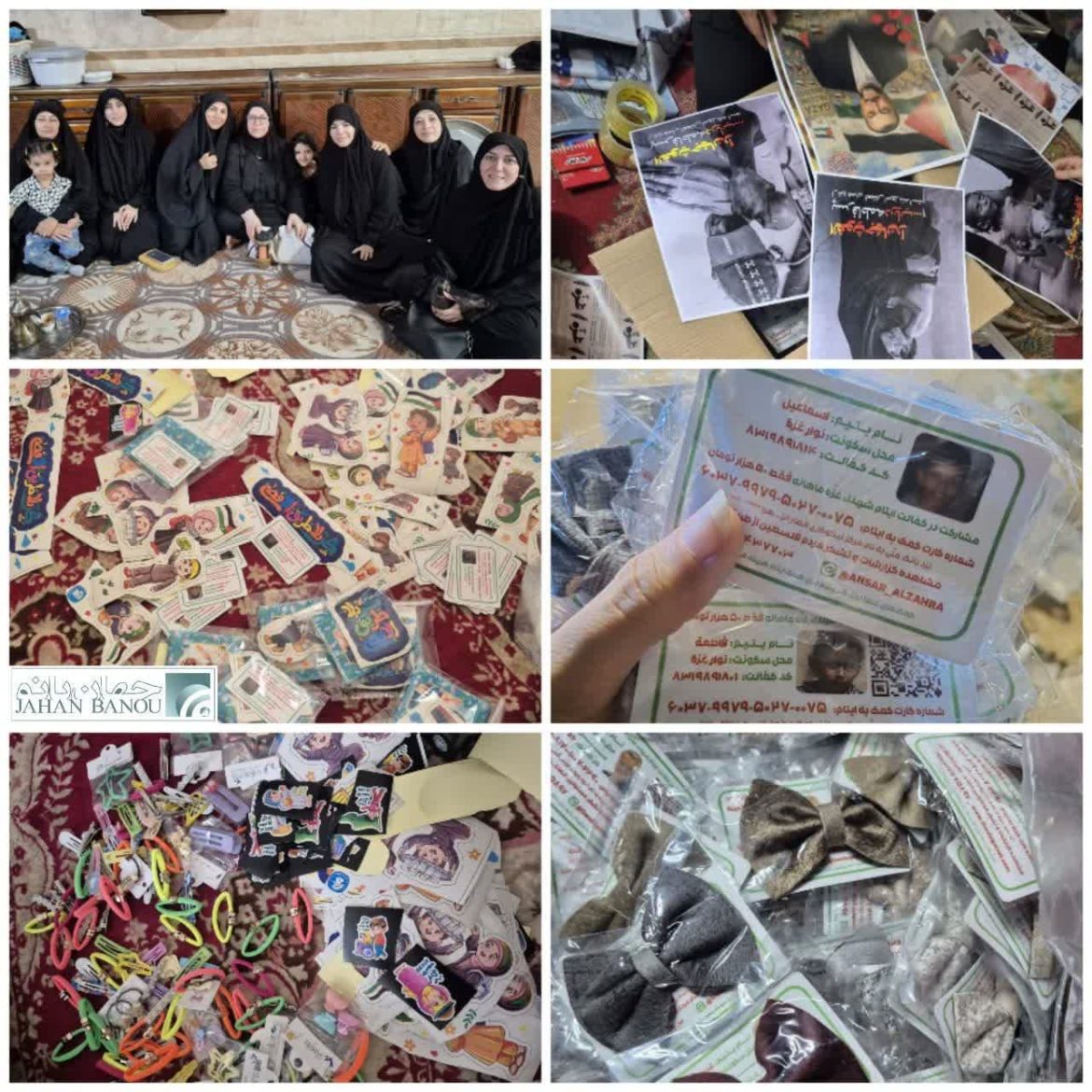At a time when devotion to the Prophet’s family burns with fervent warmth—and under the spiritual gaze of Imam Mahdi (may Allah hasten his reappearance)—pilgrims departing from Amud-e Sifr at the Al-Sahla Mosque embark on an emotional pilgrimage. Amid them, the International Uwais al-Qarni and Ansar-az-Zahra service tent stands as an oasis of love, compassion, and humanity for the children of Gaza.
Pilgrims, Compassion & Gaza’s Children
On hot days, pilgrims filled with devotion to the Ahl al-Bayt alayhim as-salam begin their heartfelt journey from the Al-Sahla Mosque’s Zero Pillar—Amud-e Sifr—under the spiritual gaze of Imam al-Zaman (may Allah hasten his reappearance). The International Uwais al-Qarni and Ansar-az-Zahra rest stop—an oasis of warmth and care—becomes a haven for these pilgrims. Here, travellers from around the world not only refresh their spirits but also embrace meaningful acts of solidarity. They donate humanitarian aid, offerings, and alms for the oppressed and starving children of Gaza, transforming this service into a powerful symbol of empathy, selflessness, and commitment to humanity.
The Youthful Heart of Cultural Service
Among the cultural servants working tirelessly to prepare multilingual brochures in Persian, English, and Arabic—highlighting the heartbreaking plight of Gaza’s children—a young woman from the 2000s generation stood shoulder to shoulder with them. Her empathetic action showcased the global mindset of today’s youth and their passionate commitment to bringing messages of justice and humanity across borders. Their cultural efforts forged an unbreakable bond between the Arbaeen pilgrims and Gaza’s suffering children, reminding the world that human pain knows no boundaries.
Al-Qarni’s Tent of Hospitality & Timeless Tradition
This rest area, named after Owais al-Qarni, was established through the dedication of Abu Haidar—a noble Yemeni-Iraqi man who, with the help of a devoted and patient family, offered his home and hospitality to pilgrims on the path of love for Hussain (peace be upon him). Each day, his welcoming household—vibrant with young brides, their courageous men, and faces laden with warmth—served freshly baked bread, cool water, tea, and warm meals.
This spirited hospitality not only alleviated the pilgrims’ fatigue, it revived the ancient Islamic tradition of generous hospitality, rooted deeply in the teachings of the Imams. Together, they painted a living portrait of faith and service that echoes the virtues of the Imam of the Age.
Rituals of Faith & Cultural Remembrance
This insightful family, ardent lovers of the Ahl al-Bayt, brought the era of the Imam of the Age to life by organizing congregational Maghrib and Isha prayers at the entrance of the tent. Meanwhile, the cultural aides of the International Uwais al-Qarni rest stop distributed blessed tokens each day: from ribbons and hair clips to Gaza-shaped pins and photos of children. They affixed empowering slogans to pilgrims’ bags—so that this spiritual journey reminds them of their profound responsibility toward the world’s oppressed.
Accompanied by educational “Palestine School” narrators, the tent’s efforts extended through special maps and stories designed to raise awareness of the suffering in Gaza and Palestine. This act of storytelling revived connections to the Iran-Iraq War, the holy shrine defenders, and the 12-day Gaza conflict—creating moving parallels through the sincere dedication of war veterans present at the tent. Each pilgrim passing through left with the recognition that the Ashura uprising is rooted in the noble tree of sacrifice and endurance, nourished by the pure blood of martyrs.
A Symbol of Unity & Boundless Faith
Beyond its devoted service to fellow humans of all faiths, this tent symbolized the unity of Iran, Iraq, Yemen, Palestine, and Lebanon—nations standing hand in hand, amplifying the cries of suffering Palestinian children and mothers. This united compassion stands as a testament to the strength of Islamic faith, justice, and solidarity, reminding us that “Palestine is the enigmatic key to deliverance.”
Every footstep along this path affirmed the truth of Ahl al-Bayt’s mission and the promise of a renewed civilization—one intertwined with service to humanity. Truly, the Arbaeen pilgrimage plays a unique role in nurturing seekers of justice for the awaited divinely guided leadership.
Reporter: Zahra Saadat


